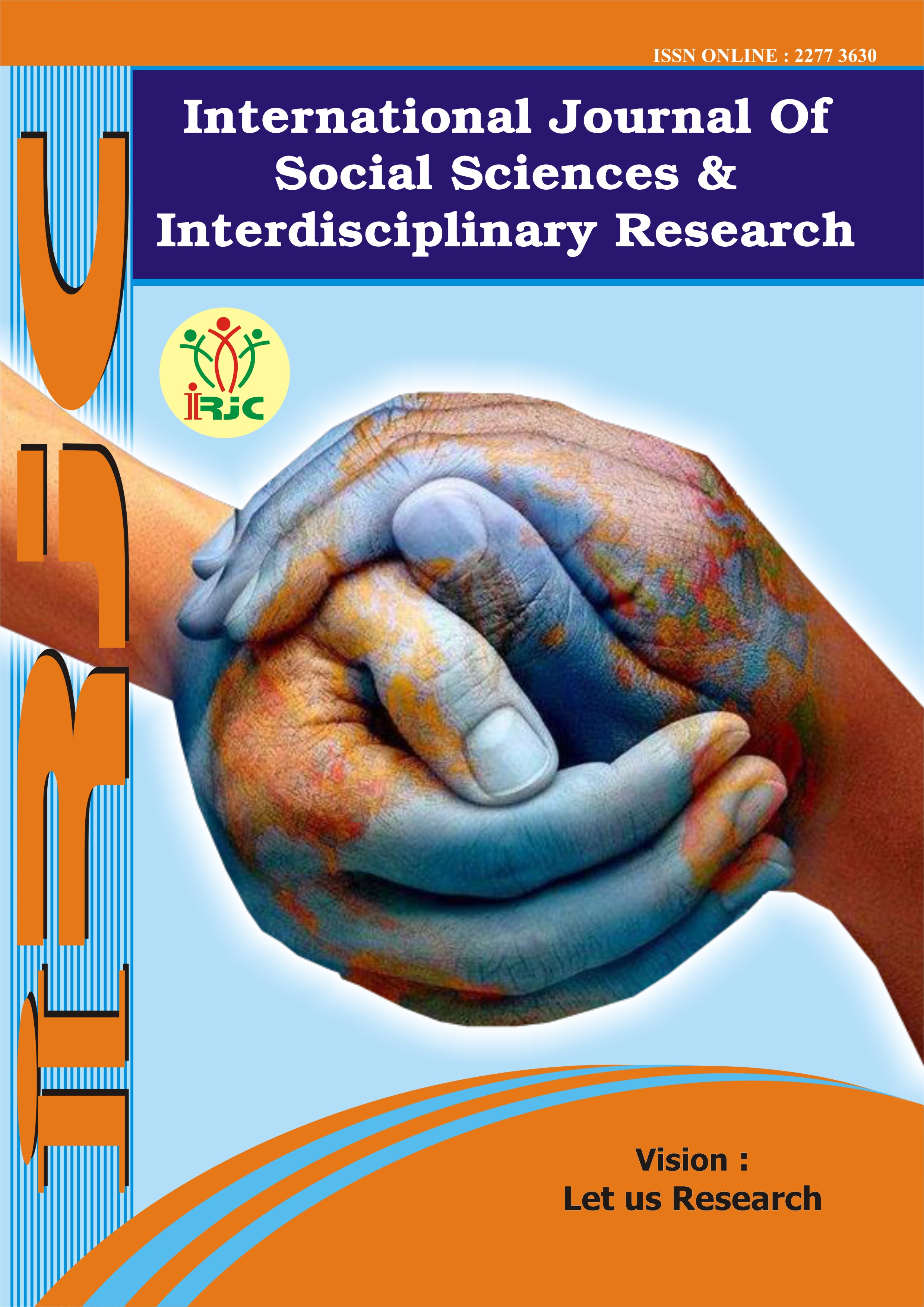FACTORS THAT CONTRIBUTE TO ENGLISH INVERSION INTRICACIES AMONG GRADE TWELVE LEARNERS
Keywords:
Factors, English Inversion, Difficulties, Secondary schools, Zambia.Abstract
This study investigates the factors that contribute to the intricacies of English inversion among Grade Twelve students at Nkulumashiba Secondary and Mikomfwa Secondary Schools in Luanshya District, Zambia. It aims to identify and evaluate persistent challenges identified in Examinations Council of Zambia reports from 2019 to 2022, which indicate poor student performance in grammatical structures such as inversion. The research involved 30 purposively selected students and 6 teachers, with data presented qualitatively. The study is framed within the theoretical perspectives of Generative Grammar and Second Language Acquisition. Key findings reveal several factors that contribute to inversion difficulties which include the following, a lack of in-depth knowledge by teachers, a shortage of teaching and learning materials as well as reliance on unguided internet resources. The reliance on unguided internet sources often results in the dissemination of incorrect information which further complicates students' understanding of inversion rules. Additionally, the study highlights an unfavorable learning environment, characterized by inadequate instructional methods and limited access to educational resources. The research uncovers a pervasive lack of knowledge among students and a significant gap in teachers' understanding of inversion concepts which contributes to poor student performance. These findings underscore the need for improved teacher training, enhanced teaching methodologies, and the development of comprehensive teaching materials to address the identified challenges. Addressing the above issues would improve English language proficiency and examination outcomes for Grade Twelve students in Zambia.
References
Akinwamide, T.K & Oguntade, F.M. (2023). Pedagogical Enhancement of the Yoruba Language
in Secondary School Students Performance in Essay Writing in Nigeria. Journal of
Education and Training, V10. Macrothink Institute Arbor: University of Michigan Press.
Aladdin, A, Mahendran .M, & Mohammed, A. (2021). Inversion and Word Order in English: A
Functional Perspective. Studies in English Language and Education, 8(2):523-545
Banda, W. & Chabala, F. (2019). The Challenges Learners Face in English Structures at
Secondary School: A Zambian Case Study. Http//x.doi.org/10.1111/i.1540478120101
Barnes, D. (2008). Exploratory Talk for Learning. In N Mercer.
Cambridge Dictionary. (2023). Cambridge Academic Content Dictionary (1st Edition). Cambridge
University Press.
Comrie, B. (1989). Language Universals and Linguistic Typology: Syntax and Morphology (2nd
Ed.) The University of Chicago Press.
Crystal, D. (2003). English as a Global Language (2nd Ed). United States of America: Cambridge
University Press,
Examination Council of Zambia. (2021). Review Examination Performance Report: Literature
and English Languages. Lusaka: Zambia.
Fahad, R. (2013). Linguistics across Cultures. Applied Linguistics for Language Teachers.
https://doi.org/10,2481/ side v81220217. Hebron University.
Govindasamy, S. & David, M. K. (2016). Literacy Practices: Developing Hypothesis about the
Second Language Acquisition. In, Hashim (Ed.), Approaches to Teaching Reading:
Focus on the Second Language Reader (pp. 75-94). MELTA-Sasbadi International Ltd. UK.
Klein, W. (2009). Second Language Acquisition (2nd edition). Cambridge University
Kombo, D.K. & Troop, D. (2006). Proposal and Thesis Writing. Nairobi Publishers
Krashen, S.D. (1987). Principles and Practice in Second Language Acquisition. Prentice Hall
Locke, K.D. (2001). Grounded Theory in Management Research: Sage Series in Management
Research. Manchester Metopolitan University.
Mkandawire, S.B. & Tumbulukani, G.K. (2017. The Role Played by the Neganega Literacy
Programme and Local Languages to the Development of Sustainable Adult Literacy
Programming in Zambia. Zambian Journal of Language Studies, 1(1): 53-83.
Mugenda, O. & Mugenda, A. (1999). Research Methods: Qualitative and Quantitative
Approach. Nairobi: ACTS.
Muhammad, F. (2021). Inversion and Word order in English: A Functional Perspective.
Nigeria studies in English Language and Education, 8(2): 523-545.
Mumba, C. & Mwanza, S.D. (2020). Factors Affecting the Application of the Text-Based
Integrated Approach in the Teaching of English in Zambia. Multidisciplinary Journal
of Language and Social Sciences Education, Volume 3 NO.1. University of Zambia
Mwaba. D. (2018). Teaching and Learning of English in Secondary Schools: A Zambian Case
Study in improving Quality: https://doi.org/ioii/j1540=4781
Qasim Obayes, A. (2020). English Inversion as used by Iraqi Learners. Education for human
Science. Doi: 10.15179/RG 2.1.4705.2099. University of Babylon
Richard, D. (2020). Modeling Discourse Topic: Sequential Relations and Strategies in English
Language. Volume 59. UK: Amazon.
Siame, P. & Banda, F. (2024). A Comparative Analysis of Micro-variations on Verbal
Extensions in ciLungu, ciMambwe, and ciNamwanga languages. Comparative
Linguistics, Translation and Literary Studies, Vol. 1 (1), 18-34.
Siame, P. & Lubbungu, J. (2023). Decolonisation: Enhancing Equity in the Management of
Language Education in Secondary Schools in Kabwe District. Kwame Nkrumah University Multi-Disciplinary Journal, Vol. 1, Issue 1: 101-116.
Siame, P., Banda, F., Kapau, H.M. and Amoakohene, B. (2023). A Morphophonological
Analysis of the Applicability of Nasalisation Principles in Lungu, Mambwe, and Namwanga Languages. Daengku: Journal of Humanities and Social Sciences Innovation, 3(1). https://doi.org/10.35877/454RI.daengku1461
Siame, P. (2022a). A Comparative Analysis of Phonological and Morpho-syntactic Variations of
Lungu, Mambwe, and Namwanga languages in Zambia (Ph.D. Thesis). Cape Town: University of the Western Cape.
Siame, P. (2022b). Potholes in the Teaching of Zambian Languages in Secondary Schools: A
Case of Bemba Language. Journal of Education and Learning Innovation. EduLine Vol. 2 No. 4. https://doi.org/10.35877/454RI.eduline1460
Smith, J. (2019). Examining the Gap: An Analysis of Syntactic Challenges in Zambian
English Language Education. Linguistic Inquiry, 38(2)301-317
Downloads
Published
How to Cite
Issue
Section
License
Copyright (c) 2024 GEJournals

This work is licensed under a Creative Commons Attribution-NonCommercial-NoDerivatives 4.0 International License.





